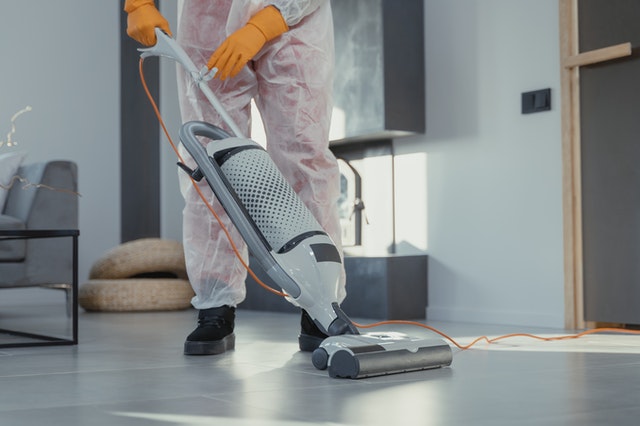
Being a landlord may allow you to earn a comfortable recurring income that may enable you to pay off your debts, generate savings and diversify your investment portfolio.
However, to achieve this kind of success requires a lot of time and dedication. At times, being a landlord can be anything but easy. That being said, being a landlord doesn’t have to be daunting.
The following are 7 tips on how to rent out your house in Orlando.
1. Understand What is Required of You
As already mentioned, being a landlord isn’t without its challenges. Before you decide to rent out your home and become a self-managing landlord, you need to understand the endeavor you’re taking on.
The following are some questions you may want to ask yourself in order to gauge your abilities:
- How will I be able to find reliable tenants that pay rent and care for my unit?
- Do I have the time to manage the day-to-day responsibilities associated with being a landlord?
- Do I know how to determine the rental rate?
- Do I know and understand local, state, and federal rental laws?
Those are just some of the handful of questions you’ll need to ask yourself prior to renting out your Orlando home.

Generally, if you have prior experience of being a landlord, then it may be easy for you. However, if you are just getting started, then it may be best to hire a professional to do it on your behalf.
2. Create a Solid Lease Agreement
You’ll need to create a set of rules that highlight your expectations for your tenants. For example, will you allow your Orlando, FL tenants to sublet the unit? If so, let your tenant know of any requirements they must meet before doing so, such as notifying you beforehand. And if you won’t, clearly state that in the lease.
Other things you’ll want to cover in your lease include rules on pets, late rent fees, and rules on property changes. After all, you won’t be able to hold your tenant accountable for something they are not aware of. Therefore, don’t leave anything to chance. Make sure your lease is as foolproof as possible to avoid issues with your tenant.
Once you’ve drafted it, make sure to have a professional go through it to make sure it abides by rental and leasing laws.
3. Make the Home Rent-Ready
In a down market, prospective tenants will be picky when it comes to choosing a rental unit. That’s because they will have a lot of options to consider. And if your unit isn’t that attractive, you’ll have a hard time renting it out.

But regardless of the prevailing market conditions, making a home attractive prior to renting it out is always helpful. This is because if it stands out from the competition it’ll get rented out much faster.
A home that is ready to rent should be able to meet some of the following standards:
- It should already be professionally cleaned
- It shouldn’t have any pending repairs
- It should have functioning appliances
- It should have working plumbing, electrical, and ventilating systems.
4. Know How Much Rent to Charge Tenants
You’ll also need to know how much rent to charge your Orlando tenants. This can be a huge selling factor.
Generally, the rent amount to charge tenants should adhere to the 1% Rule. According to the rule, the ideal rent amount should be at least 1% of the value of the home. So, supposing your home is valued at $300,000, then the ideal rent to charge for it should be at least $3,000.
5. Understand Your Legal Obligations
Landlords have some legal obligations when it comes to renting out a unit. The following are some of them:
- Fair Housing Law – This requires that you treat all your tenants respectfully and fairly without any form of discrimination on the basis of some protected characteristics. In Orlando, protected characteristics include race, color, religion, disability, age, marital status, gender, and national origin.

- Security Deposit Laws – There are certain rules that you must abide by when it comes to security deposits. For example, you must store your tenants’ deposits in either a normal account, an interest-bearing one, or post it as a surety bond.
- Warranty of Habitability – As a landlord, you have a responsibility to provide your tenant with a home that meets certain health, safety, and building codes as prescribed under state and local laws. For instance, you must ensure that the home you’re renting out has functioning smoke and carbon monoxide detectors.
- Mutual Covenant of Quiet Enjoyment – Orlando tenants have a right to live in peace and quiet enjoyment of their rented space. Among other things, you must provide them a notice at least 12 hours prior to entering their rental unit.
It’s important that you familiarize yourself with these laws prior to renting out your Orlando home. It should also be noted that these laws are subject to change therefore you must remain up-to-date.
6. Start Marketing Your Orlando Home
If you are confident about your abilities as a landlord, then you need to start finding tenants to fill your property. Design an attractive rental ad and then list it on as many relevant platforms as possible.

7. Hire an Experienced Property Management Company
If, however, you aren’t as confident in your abilities as a first-time landlord, then hiring an experienced property manager can be the best option.
A good property manager will be able to handle everything on your behalf, from marketing the property and screening tenants to maintaining the unit and taking care of all legal issues.
Summary
Renting out your Orlando home can certainly change your financial fortunes if you approach it correctly. RentSmartUSA is the most comprehensive property management company in Orlando, FL. We can help you manage your rentals! Get in touch with us to learn more about our services.
Disclaimer: This piece is intended for informational purposes only and should not be used as a substitute for professional legal advice. If you have any questions please contact a licensed attorney or property management company.